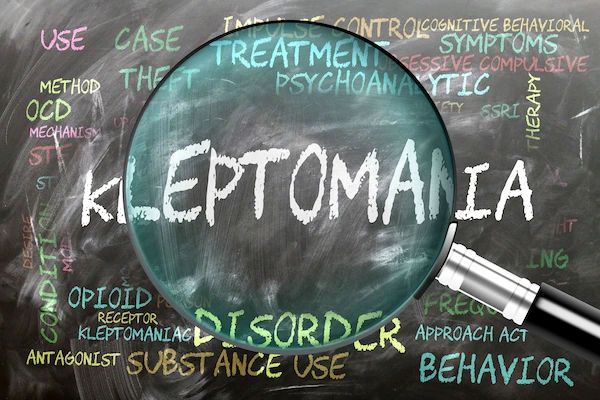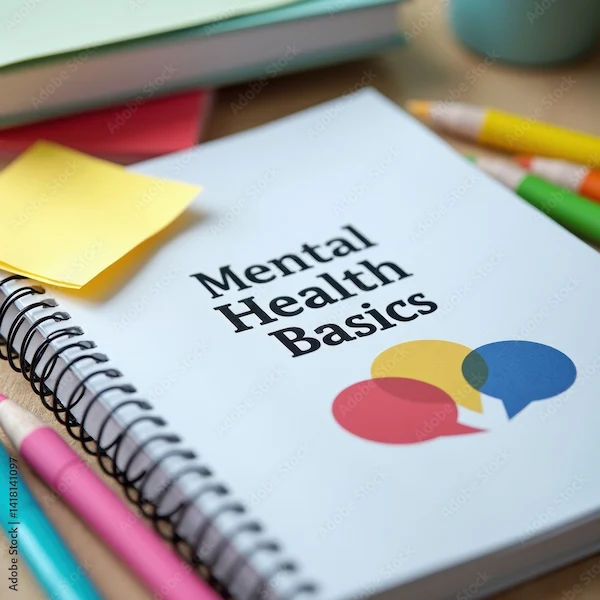Hypochondria Insights: Causes, Symptoms and Treatment
Understand hypochondria (health anxiety) with insights into its causes, symptoms, and treatment options. Learn how to manage and cope with the fear of serious illness.

Written by Dr.Sonia Bhatt
Last updated on 3rd Jul, 2025

Hypochondria, also known as illness anxiety disorder, is a condition where individuals have an overwhelming fear of having a serious medical illness or are excessively concerned about their health. They may misinterpret normal bodily sensations as signs of severe illness, leading to constant worry. Even when medical tests show no evidence of a health problem, their anxiety remains, and they continue to focus on their perceived health threats. This persistent worry can disrupt daily life, affecting relationships, careers, and overall well-being. While some individuals with this disorder may have an actual medical condition, their anxiety often magnifies the severity of the situation. In this blog, we’ll learn about the causes, symptoms and treatment of hypochondria.
Types of Hypochondria
There are two primary types of hypochondria, or illness anxiety disorder:
1. Care-seeking: Individuals in this category frequently visit healthcare providers, seeking advice from multiple specialists and requesting numerous medical tests, driven by a constant fear of being seriously ill.
2. Care-avoidant: Those with this type tend to avoid healthcare settings, often distrusting doctors or believing they won't take their symptoms seriously. This avoidance can amplify their fears and anxieties.
Causes of Hypochondria
The exact cause of hypochondria (illness anxiety disorder) is not fully understood, but several factors may contribute:
1. Beliefs: People with hypochondria often struggle to tolerate uncertainty regarding unusual or uncomfortable bodily sensations. This can lead to misinterpreting these sensations as signs of serious illness, causing them to search for confirmation of a disease.
2. Family: If a person grew up in an environment where parents were excessively concerned about their own or their child’s health, they may be more prone to developing health anxiety.
3. Past Experiences: A history of experiencing serious illness during childhood or witnessing a loved one’s health struggles can make physical sensations more frightening and increase anxiety about potential health issues.
Risk Factors of Hypochondria
Hypochondria (illness anxiety disorder) typically begins in early to middle adulthood and can worsen with age. For older individuals, anxiety may often revolve around the fear of memory loss.
Risk factors for hypochondria include:
1. Major Life Stress: Experiencing significant stress or life changes can trigger or worsen health anxiety.
2. Misdiagnosed Illness: The fear of having a serious illness that later turns out to be non-threatening can contribute to health anxiety.
3. Childhood Trauma: A history of abuse or significant health issues during childhood, or growing up with a parent who had a serious illness, can increase the likelihood of developing hypochondria.
4. Personality Traits: People who tend to be more prone to worry or are perfectionistic may be more vulnerable to illness anxiety disorder.
5. Excessive Health-Related Internet Use: Constantly researching symptoms or medical conditions online can fuel anxiety and lead to hypochondria.
Symptoms of Hypochondria
Symptoms of hypochondria (illness anxiety disorder) involve an intense preoccupation with the belief that you're seriously ill, often triggered by normal body sensations or minor physical signs. Common signs and symptoms include:
Constant Worrying: Preoccupation with the fear of having or getting a serious illness.
Misinterpreting Minor Symptoms: Anxiety that everyday body sensations (like a headache or stomach ache) indicate a severe health condition.
Excessive Alarm: Overreacting to perceived health threats and constantly fearing illness.
Limited Reassurance: Difficulty finding comfort or reassurance, even after medical visits or negative test results.
Obsession with Specific Conditions: Persistent concern about a particular illness, especially if it runs in the family.
Disruptive Anxiety: Health worries causing significant distress, making it hard to carry out daily activities.
Constant Body Checking: Repeatedly inspecting your body for signs of illness or disease.
Frequent Medical Visits: Constantly making doctor appointments for reassurance or avoiding healthcare due to fear of diagnosis.
Avoidance of Health Risks: Steering clear of people, places, or activities out of fear of health risks.
Talking About Health Issues: Frequently discussing your health and potential illnesses with others.
Excessive Online Searching: Continuously researching symptoms or potential medical conditions on the internet.
Diagnosis of Hypochondria
To diagnose hypochondria (illness anxiety disorder), your healthcare provider will likely begin with a physical exam and may recommend specific tests to rule out any underlying medical conditions. This helps determine if there are any actual health issues that require attention, while also limiting unnecessary lab tests, imaging, and specialist referrals.
In addition to this, your provider may refer you to a mental health professional who will:
Conduct a thorough psychological evaluation, discussing your symptoms, stressors, family history, health anxieties, and the impact of your worries on daily life.
Have you complete a psychological self-assessment or questionnaire to assess your anxiety levels.
Ask about your use of alcohol, drugs, or other substances that could affect your mental health.
Assess whether your health concerns are better explained by another mental health condition, such as generalized anxiety disorder or somatic symptom disorder.
Treatment Options
The primary goal of treatment for hypochondria (illness anxiety disorder) is to help manage anxiety about your health and improve daily functioning. Psychotherapy, often referred to as talk therapy, is commonly used, and sometimes medications may also be prescribed.
1. Psychotherapy
Since physical sensations can be linked to emotional distress and health anxiety, psychotherapy—especially cognitive behavioural therapy (CBT)—is a highly effective treatment. CBT helps individuals learn to manage health anxiety and find alternative ways to cope with worries instead of relying on excessive medical testing or avoiding healthcare.
CBT can help you:
Identify fears and beliefs about having a serious illness.
Learn new ways to interpret body sensations by challenging unhelpful thoughts.
Become more aware of how your anxiety affects your actions and behaviors.
Change responses to body sensations and symptoms.
Develop coping skills to manage stress and anxiety.
Reduce avoidance of situations or activities due to physical symptoms.
Curb behaviors such as repeatedly checking for illness signs or seeking constant reassurance.
Enhance daily functioning at home, work, in relationships, and socially.
Address other mental health concerns like depression.
Other therapies, such as behavioural stress management and exposure therapy, may also prove beneficial.
2. Medications
Antidepressants, including selective serotonin reuptake inhibitors (SSRIs), are commonly prescribed to help treat hypochondria. Medications targeting mood or anxiety disorders may also be used if present.
It’s important to discuss medication options, potential side effects, and risks with your doctor to determine the best course of treatment.
Coping Mechanisms and Self-Help Strategies
Coping mechanisms and self-help strategies for hypochondria focus on managing anxiety, reducing health-related fears, and promoting a balanced perspective on health, helping individuals regain control and improve their well-being.
1. Techniques for Managing Anxiety and Stress
Techniques for managing stress and anxiety are as follows:
Work with your provider: Regular visits help build trust and manage concerns. Set limits on tests and referrals.
Practice relaxation techniques: Use methods like deep breathing or progressive muscle relaxation to reduce stress.
2. Lifestyle Changes That Can Help Alleviate Symptoms
Lifestyle changes required to alleviate the symptoms of hypochondria are as follows:
Stay active: Regular exercise can reduce anxiety and improve well-being.
Stay socially involved: Connect with family, friends, and work to prevent isolation.
Avoid substance use: Alcohol and drugs can increase anxiety—seek help if needed.
Limit online health searches: Focus on scheduled doctor visits instead of searching for symptoms online.
Conclusion
Hypochondria, or illness anxiety disorder, can significantly impact a person's life, leading to constant worry and excessive health concerns, even when no underlying medical issues are present. Understanding the causes, symptoms, and treatment options is essential for managing the condition effectively. With the right support, including psychotherapy, medications, and lifestyle changes, individuals with hypochondria can learn to cope with their anxiety, reduce distress, and improve their overall well-being. If you or someone you know is struggling with health anxiety, seeking professional help is a crucial step toward regaining control over their mental and physical health.
Consult Top Neurologist
Consult Top Neurologist

Dr. H Rahul
Neurologist
10 Years • MBBS, MD(Gen. Med.), DM(Neuro)
Secunderabad
Apollo Hospitals Secunderabad, Secunderabad
(100+ Patients)

Dr. Sushant Aildasani
Neurologist
4 Years • M B B S , M D MEDICINE ( GOLD MEDAL) D M ( NEUROLOGY )
Indore
Apollo Hospitals Vijay Nagar, Indore
(25+ Patients)

Dr. Nipun Puranik
Neurologist
8 Years • MBBS MD, DM
Indore
Apollo Hospitals Vijay Nagar, Indore

Dr. Amit Kapoor
Neurosurgeon
18 Years • D.N.B NeuroSurg.
Delhi
Apollo Hospitals Indraprastha, Delhi

Dr Debnath Dwaipayan
Neurosurgeon
9 Years • MBBS, MS(Gen. Surgery), DrNB (Neurosurgery)
Delhi
Apollo Hospitals Indraprastha, Delhi




